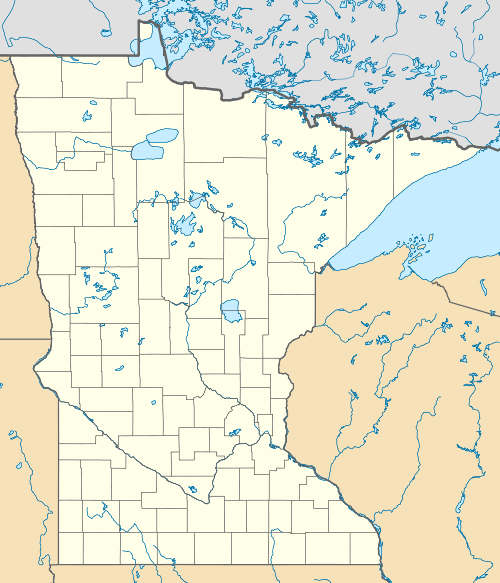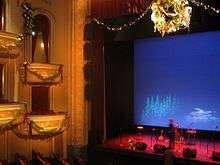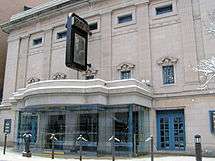Fitzgerald Theater
|
Sam S. Shubert Theater, World Theater | |
|
Sam S. Shubert Theater and Shubert Building | |
  | |
| Coordinates | 44°56′56″N 93°5′50″W / 44.94889°N 93.09722°W |
|---|---|
| NRHP Reference # | 84004140[1] |
| Added to NRHP | August 20, 1984 |
|
Exterior view of the Fitzgerald Theater | |
| Address |
10 East Exchange Street Saint Paul, Minnesota United States |
| Coordinates | 44°56′56″N 93°05′50″W / 44.94889°N 93.09722°W |
| Owner | Minnesota Public Radio |
| Type | Provincial |
| Capacity | 1,058 |
| Construction | |
| Opened | 1910 |
| Architect | Marshall and Fox |
| Website | |
|
fitzgeraldtheater | |

The Fitzgerald Theater is the oldest active theatre in Saint Paul, Minnesota, and the home of American Public Media's A Prairie Home Companion.[2] It was one of many theaters built by the Shubert Theatre Corporation, and was initially named the Sam S. Shubert Theater.[2][3] It was designed by the noted Chicago architectural firm of Marshall and Fox, architects of several theaters for the Shuberts. In 1933, it became a movie outlet known as the World Theater. The space was purchased by Minnesota Public Radio in 1980 and restored with a stage in 1986 as a site for Prairie Home, and was renamed in 1994 after St. Paul native F. Scott Fitzgerald.[2]
The theater is owned by Minnesota Public Radio.[2]
On November 4, 2002, the theater was the site of a memorable election-eve debate between United States Senate candidates Norm Coleman (previously mayor of St. Paul) and Walter Mondale (formerly a U.S. Vice President) and moderated by Gary Eichten of MPR and Paul Magers of local television station KARE. Tension was heightened at the time because Mondale stepped in as a candidate at the last minute after the death of Paul Wellstone, who had been running for re-election.
In 2005, the theater was used for filming the Prairie Home Companion movie directed by Robert Altman.[2] While a certain level of realism is added by using the normal venue for the show, the regular equipment was eschewed in favor of sets designed for the movie. Because the theater is a small building, other theaters in the region were also scouted prior to filming, just in case the Fitzgerald was not big enough, but eventually it was determined to be adequate for the film's needs.
References
- ↑ National Park Service (2007-01-23). "National Register Information System". National Register of Historic Places. National Park Service.
- 1 2 3 4 5 "About the Fitzgerald Theater". Minnesota Public Radio. Retrieved 2007-12-15.
- ↑ Nord, Mary Ann (2003). The National Register of Historic Places in Minnesota. Minnesota Historical Society. ISBN 0-87351-448-3.
External links
![]() Media related to Fitzgerald Theater at Wikimedia Commons
Media related to Fitzgerald Theater at Wikimedia Commons
